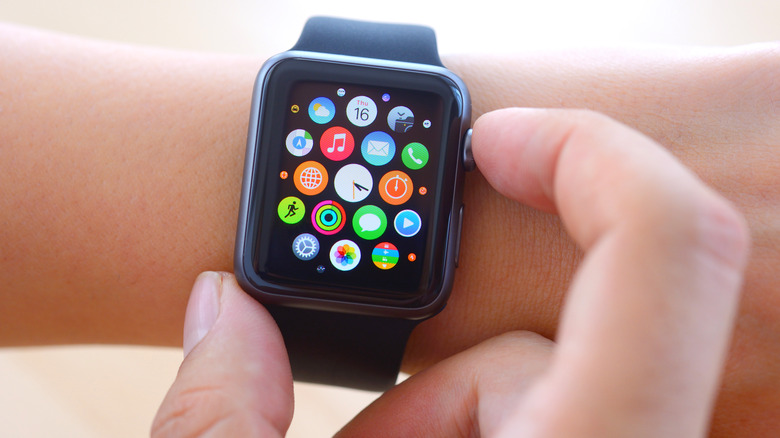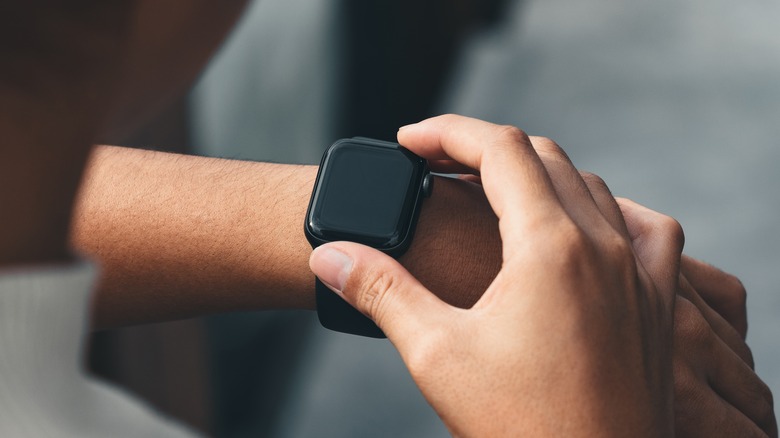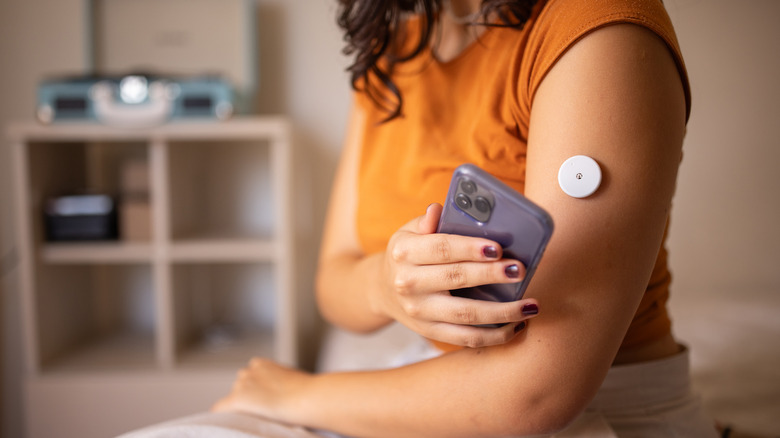
Hocus-focus/Getty Images
Wearables like the Apple Watch have long been positioned as devices that can tell us a lot about our bodies and help us live healthier lives. To date, this has largely involved basic fitness-tracking features that can easily be monitored non-invasively like your heart rate, but long-term, the goal has always been to find ways to scrutinize other health markers. One target has long been blood glucose levels for those with diabetes and/or hypoglycemia, but the science isn’t there yet. In fact, it’s so not there that on Wednesday, the U.S. Food and Drug Administration (FDA) issued a warning to consumers to avoid using «smartwatches or smart rings that claim to measure blood glucose levels.»
These claims aren’t being made by the major smartwatch manufacturers like Apple or Samsung. Instead, devices from random unknown brands claiming to offer these features are «sold through online marketplaces or directly from the seller,» per the FDA. «Be aware that the safety and effectiveness of these devices have not been reviewed by the FDA, and the use of these devices could result in inaccurate measurements of blood glucose levels.»
The FDA’s advisory stresses that any device that claims to test blood glucose levels without piercing the skin is not making those readings directly. Incorrect readings could, according to the agency, result in «errors in diabetes management.» That, in turn, may result in taking the wrong dose of insulin or other medications, potentially leading to grave consequences like «dangerously low glucose, leading to mental confusion, coma, or death within hours of the error.»
What about the Apple Watch?

blackzheep/Shutterstock
Though this kind of feature doesn’t yet exist on smartwatches or smart rings, that doesn’t mean it won’t be a thing in the future. We’ve long heard rumors about Apple’s alleged work toward bringing blood glucose monitoring directly to its Apple Watch. For example, in February 2023, Bloomberg claimed that Apple was getting closer to a breakthrough that would enable its watch to keep track of a user’s blood sugar levels non-invasively. That process may involve something called silicon photonics.
Put simply, silicon photonics would use light to take a peek at the user’s blood sugar levels — a big change from current monitoring tech, which is invasive. Such technology would revolutionize daily life for many people, but at the time of writing, it’s not yet a thing and Apple itself has kept quiet about any potential innovations it may have developed. It’s yet to be seen whether this type of technology could one day win over the FDA, and at present, there’s nothing like it on the market.
Wireless blood glucose monitors are different

Miodrag Ignjatovic/Getty Images
If the advisory is throwing you for a loop because you recall a story about someone’s life being saved by his Apple Watch, which correctly noticed his blood glucose levels bottoming out, then that knowledge gap is easy to fill. In November 2022, CNET’s Justin Eastzer wrote about how his Apple Watch had woken him up to warn him of the drop in his glucose levels, but crucially, he was wearing an FDA-approved continuous blood glucose monitor, and that monitor was synced to his Apple Watch.
«I have Type 1 diabetes, and I wear a continuous glucose monitor that measures my blood sugar levels,» he wrote. «Luckily, my glucose monitor connects to my Apple Watch and sends notifications before it’s too late.» When the Apple Watch woke him up, he raced to his refrigerator, drank orange juice, «passed out» from his glucose levels bottoming out, and then woke up after a few minutes when his levels normalized. «That was one of the scariest moments of my life, and thanks to my Apple Watch alerts, I was able to address the low blood sugar before it was too late,» he added.
Questionable device claims
From a quick Amazon search, it looks like the online superstore has done a good job of keeping sellers from claiming that their wearables offer non-invasive blood glucose monitoring. However, it appears that some sellers may have still slipped such claims through via potentially inauthentic product reviews. For example, one product listing from «SOUYIE» features a review — fourth from the top at the time of writing — that specifically singles out purported glucose monitoring in its title. «What really made me happy is the diabetic glucose feature,» writes Viktoriia B. «This is super cool! It’s not just a stylish gadget; it’s a valuable tool for health management.»
Found in the same top search results, a product sold by «TADIBU» has its alleged blood glucose monitoring capabilities touted in its top review. «This watch does EVERY THING [sic] I need one to do and seems to do it very well,» writes a reviewer using the handle Batman1945. «I need to check SPO2, BP, HR, and glucose several time [sic] each day, and this does them all.» Claiming to do blood glucose monitoring doesn’t necessarily mean cheap smartwatches are bad products overall, but it’s a strong sign that you should use caution in shopping for these devices, scrutinize their claimed features, and never use them as a substitute for proper medical gear.